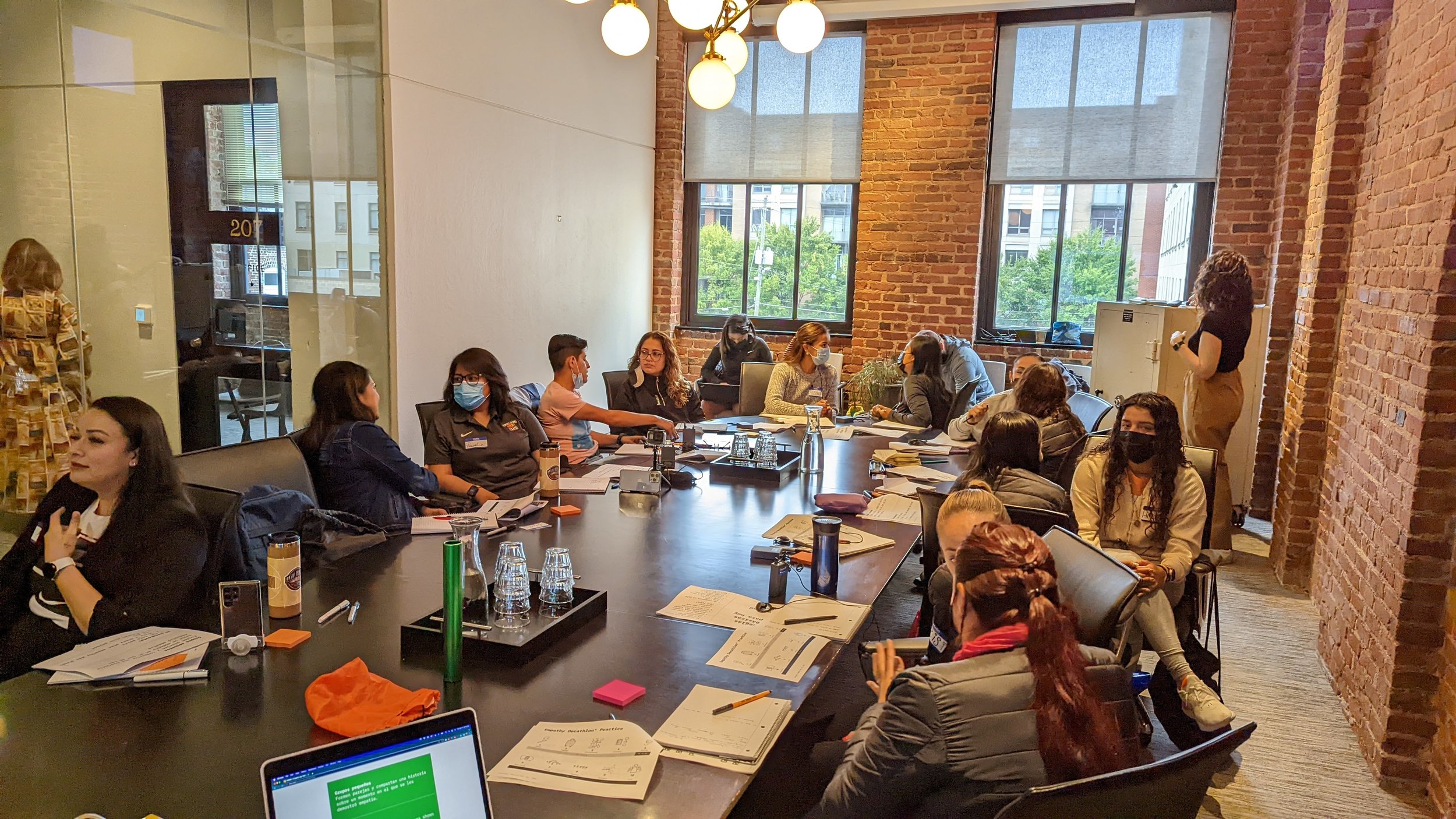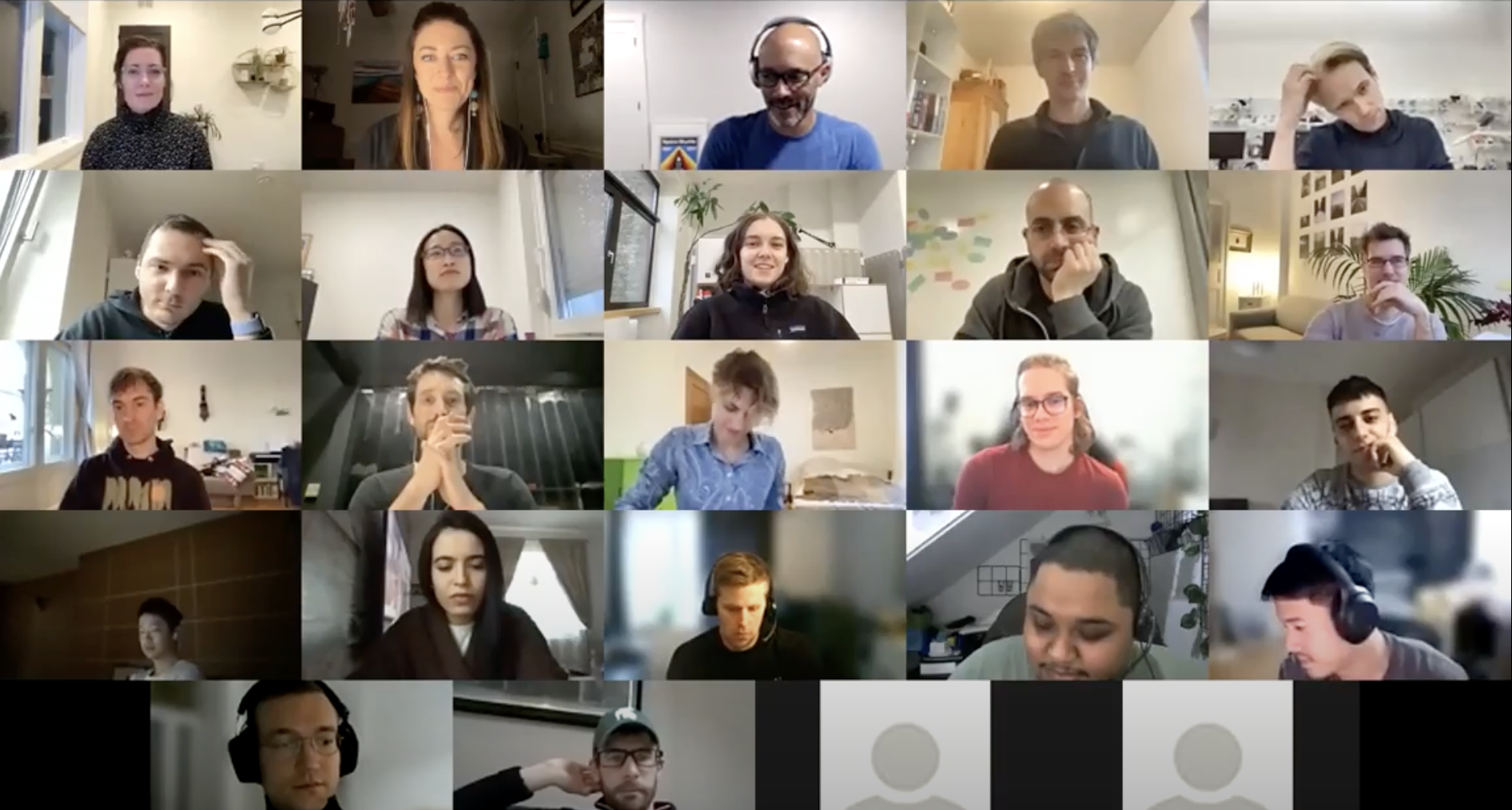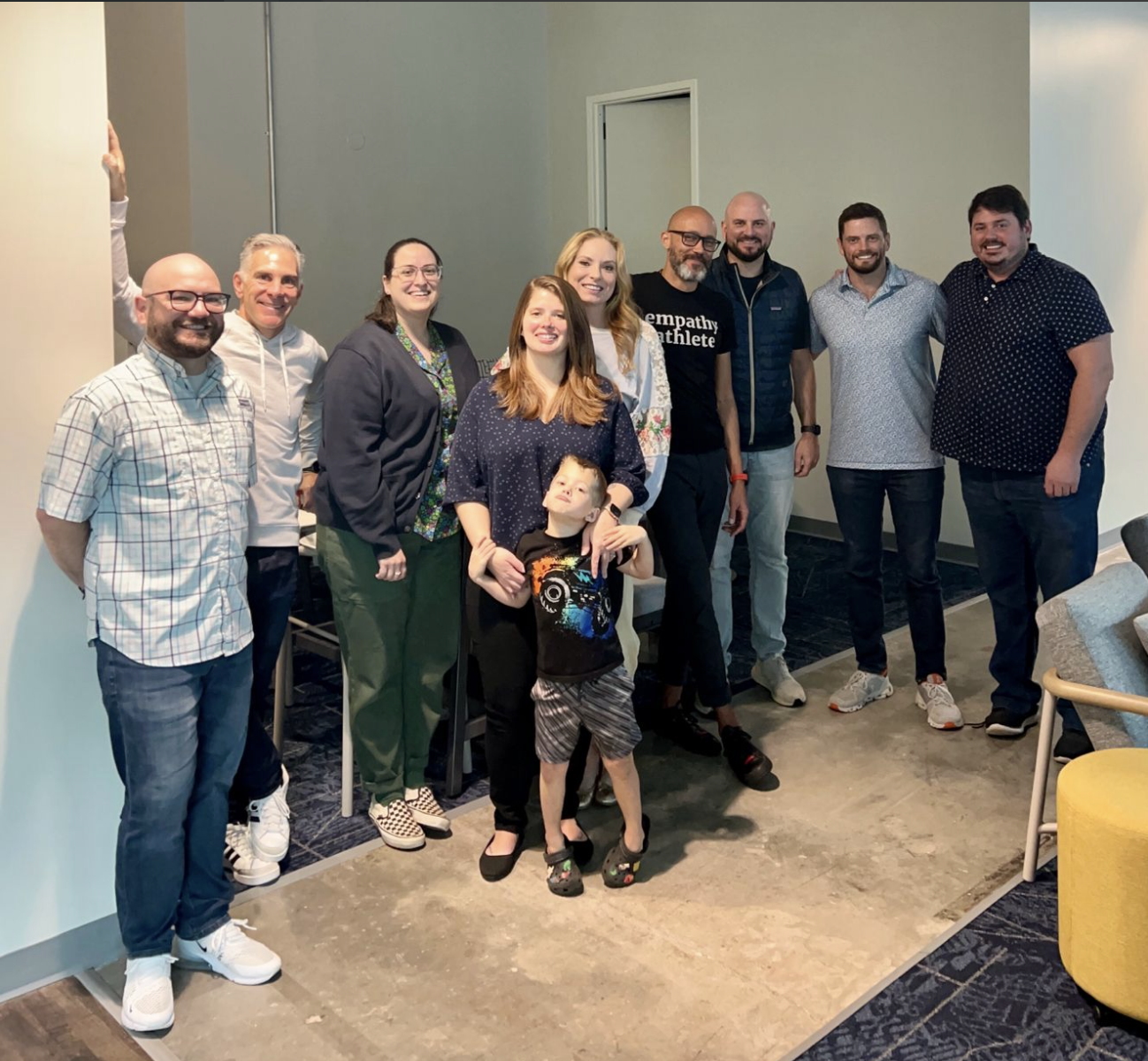
The Empathy Decathlon®
Our framework for practicing empathy
All good things take practice and empathy is definitely one of them. The Empathy Decathlon framework was created to help individuals, teams, and organizations better utilize empathy through layered skill practice. We start practice by focusing on me-empathy so that we can individually assess personal energy, baggage, and self-awareness. This helps each individual transition from self reflection practices to collaborative we-empathy practices. With the we-empathy micro-skills we practice listening, responding, asking, meaning making, feedback, and leadership skills.
Teams + Companies We’ve Practiced With
-

Empowering the Ages
“That could not have gone better from my perspective -- wow. Thank you! Just exactly the right info, SO valuable for the work, so well tailored to this group, presented in a really accessible way. I could tell it was REALLY landing with the group (despite our one volunteer's strong desire for handouts ahead of time!) It was awesome, start to finish.”
- Megan Tracy Benson (Cofounder & Deputy Director) -

fhi360
"You connected with my heart's language".
- translated from Spanish to English, from a participant.
More details of this empathy practice here. -

GCI Health
"I so appreciated your ability to flex with us as we all navigated this new territory together!"
- Eleanor Petigrow (Global Chief Growth Officer) -

Pupil Labs
“I really think the concept of 'baggage' helped the team connect and find common language. It also encouraged people to be more open/authentic and knowing that they would be supported in communicating personal or professional baggage and challenges.”
- Will Patera`(Co-Founder at Pupil Labs) -

Nationwide Insurance
“The work Shelton contributed to is the foundation of some our innovation organization’s most promising opportunities to commercialize against. Shelton personally played the role of designer but wore many hats including empathy coach, researcher, and facilitator of insight mapping activities.”
- Marcus Hitt (Associate Vice President, Corporate Strategy) -

Verusen
“We loved hearing from Shelton D. at the Empathy Lab for the 2️⃣nd year in a row during #blackhistorymonth! Thanks for your time Shelton 👏🏿👏🏾👏🏼👏”
- Verusen LinkedIn
A dynamic empathy practice of 10 mental, emotional, physical, and spiritual skills designed to empower human achievement from the inside out.
Empathy is the only individual human ability that drives us to succeed collectively. It’s the common denominator at the heart of all great collaboration, invention and innovation. It’s the first step in Design Thinking (more on that soon). And the first step we trip over, rush through or skip altogether. Why?
Because we have to learn how to live empathetically, first. The Empathy Decathlon workshop combines the science of human behavior, the art of human-centered design, and the sport of track-and-field into an empowering, 10-skill practice series for individuals and teams.
Empathy Decathlon®
10 individual skills that power the world’s greatest teams
ME-empathy micro-skills
Conditioning your empathy muscles.
Knowing and growing who you are and how you work.
WE-empathy micro-skills
Practicing alongside a world full of teammates.
Understanding and connecting with others to work better together.
Me-Empathy Micro-Skills
-

#1 Energy
Our capacity to take on life's experiences.
-

#2 Baggage
Life's weights that we take on as we live.
-

#3 Self-Awareness
Knowing where you are helps you identify how you can show up.
-

#4 Inventory
An intentional pause that makes space for self reflection on Energy, Baggage, Self-Awareness, and power + privilege.
-

#5 Hearing
How we absorb information and distractions around us.It involves more senses than just our ears, and is impacted by our cognitive biases.
We-Empathy Micro-Skills
-

#6 Responding
We respond to another in a way that is neutral and clarifying.
-

#7 Asking
We request additional information from another in a way that is neutral and clarifying.
-

#8 Meaning
Our second intentional pause to make an accurate interpretation of the information we have heard and gathered.
-

#9 Feedback
How we share our interpretation of information in a focused way that moves the experience forward.
-

#10 Lead
Empathetic Leadership looks like cultivating a safe environment that allows for individual growth and empowered teams.


